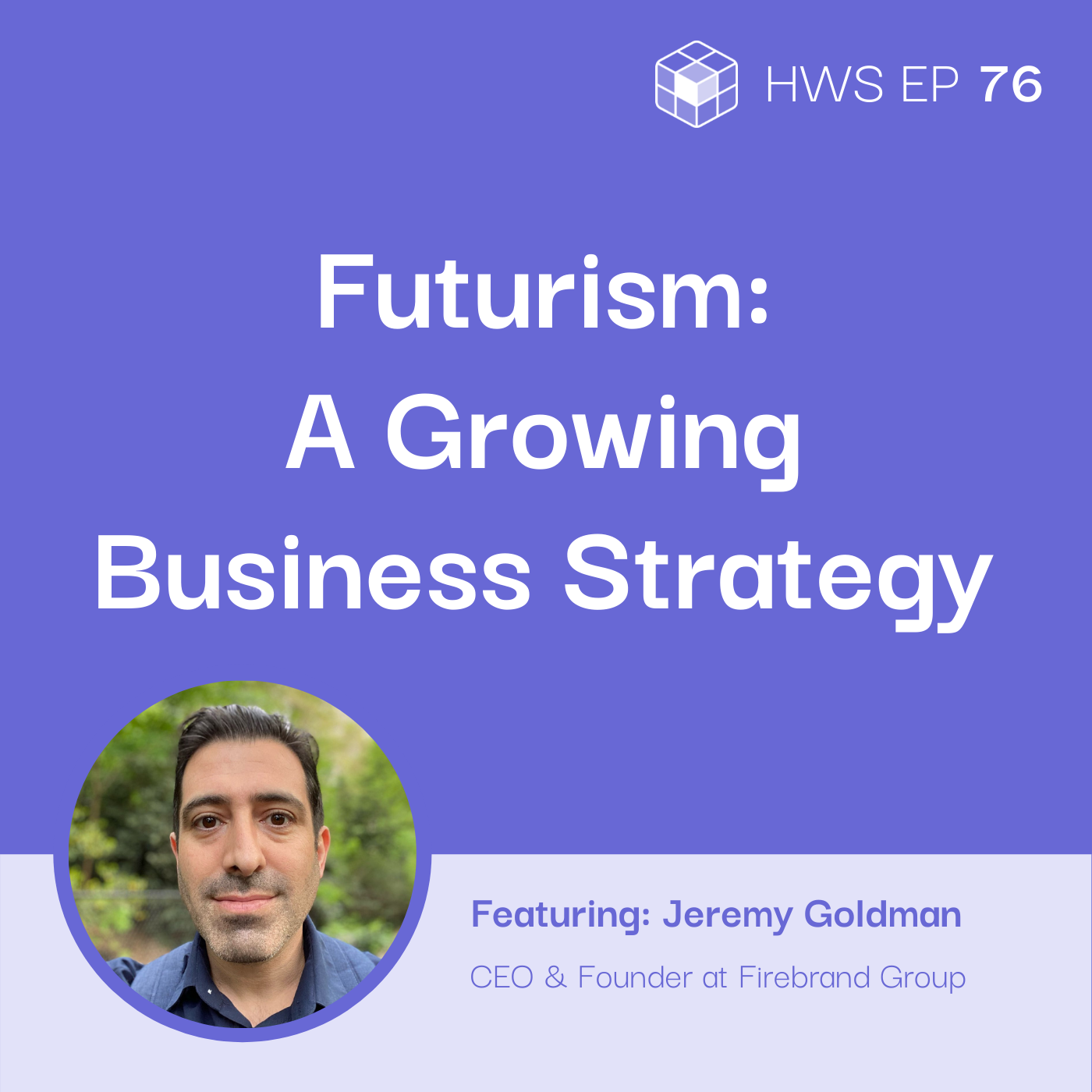Listen on:
Table of Contents:
Problem: Becoming a Better Futurist
Futurism is an interesting topic. While some of us are busy looking to the past or trying to be present, there are many people out there, trying to predict what will happen in the future. They analyze data and trends. They use information from the past and the present, in order to predict what will happen in the future.
Being a futurist is somebody who tries to break down all the possibilities of what might happen in the future and tries to predict, on an ongoing basis, what’s going to occur, and to do so in a very pragmatic, non-dogmatic fashion.
The Steps to Seeing Into the Future
Why is it important to predict the future?
Predicting the future is important and rewarding for businesses because it can give you a leg up on the competition if you are able to predict trends in your industry before anyone else. It is also good for laymen in that you will be able to better prepare for events in your life if you can predict what direction everything is moving. While you might not be able to predict specific events, you can analyze the data to see what you will need to prepare for mentally or physically.
Understanding your own biases and where you’re coming from is probably one of the biggest elements in being able to predict what will happen in the future
Who logs on to the internet anymore? You’re always on the internet; it’s not really possible to be off of it anymore.
How to predict what will catch on in the future
There are a plethora of factors involved when it comes to things that will “become a thing” or “catch on.” While having a fan base or a group who like the product or service is important, you also have to think about other factors like cost and regulation. For example, with autonomous self-driving cars, the technology is much further ahead than the regulation.
- Look to the past because history repeats itself
- Contextualize those events if they are to happen today or in the near future
- Talk to experts in various fields, in order to see trends
- Look to human tendencies and keep that in mind when thinking about trends
Just because the technology is there and ready for prime-time, it won’t be enough if it doesn’t really speak to people and their needs.
Predictions for the Future
Jeremy thinks of himself as a short-term futurist. He looks into the near future and makes predictions about topics where he can be relatively accurate and helpful. With that in mind, he predicts that we will be giving away more of our privacy in the future and that privacy itself will be more of an old-fashioned notion. Because people get more personalized experiences based on the data they give up, this will heavily impact how much of themselves they are willing to give out to businesses, people, and the government. This process has already started and Jeremy thinks people will begin to get used to it.
Short-term futurism is thinking about how far ahead can you be relatively accurate to some extent and to still be helpful to people.
On the topic of Cryptocurrency
While he was not as enthusiastic about cryptocurrency at first, Jeremy says he realizes there is an evolution of technology in currency as well. No matter what system we are talking about, humans are always trying to streamline and change the system so it better complements other developments in our lives. Currency is no different. Jeremy fully believes that crypto will take off. However, for him, it is a matter of when, not if.
From early forms of currency, to modern currency, to credit cards, there is a natural evolution there, where we are always trying to figure out how we can have better systems from a fiscal standpoint.
This interview is part of the How We Solve podcast. To hear more from industry experts who are solving everyday business problems, check us out on Spotify, Apple Podcasts, and on our website.
About the guest

Jeremy Goldman
Jeremy is a futurist, a keynote speaker, host of the podcast Futureproof, and author of the book “Going Social”. He’s also a social media expert, entrepreneur and a strategist. Recently, he started his own management consultancy and branding/communications agency called Firebrand Group, which focuses on personal branding rather than business branding.
How people can people reach the guest:
Podcast: Futureproof
Book: Going Social: Excite Customers, Generate Buzz, and Energize Your Brand with the Power of Social Media by Jeremy Goldman
Book: Getting to Like: How to Boost Your Personal and Professional Brand to Expand Opportunities, Grow Your Business, and Achieve Financial Success by Jeremy Goldman
Listen on:
